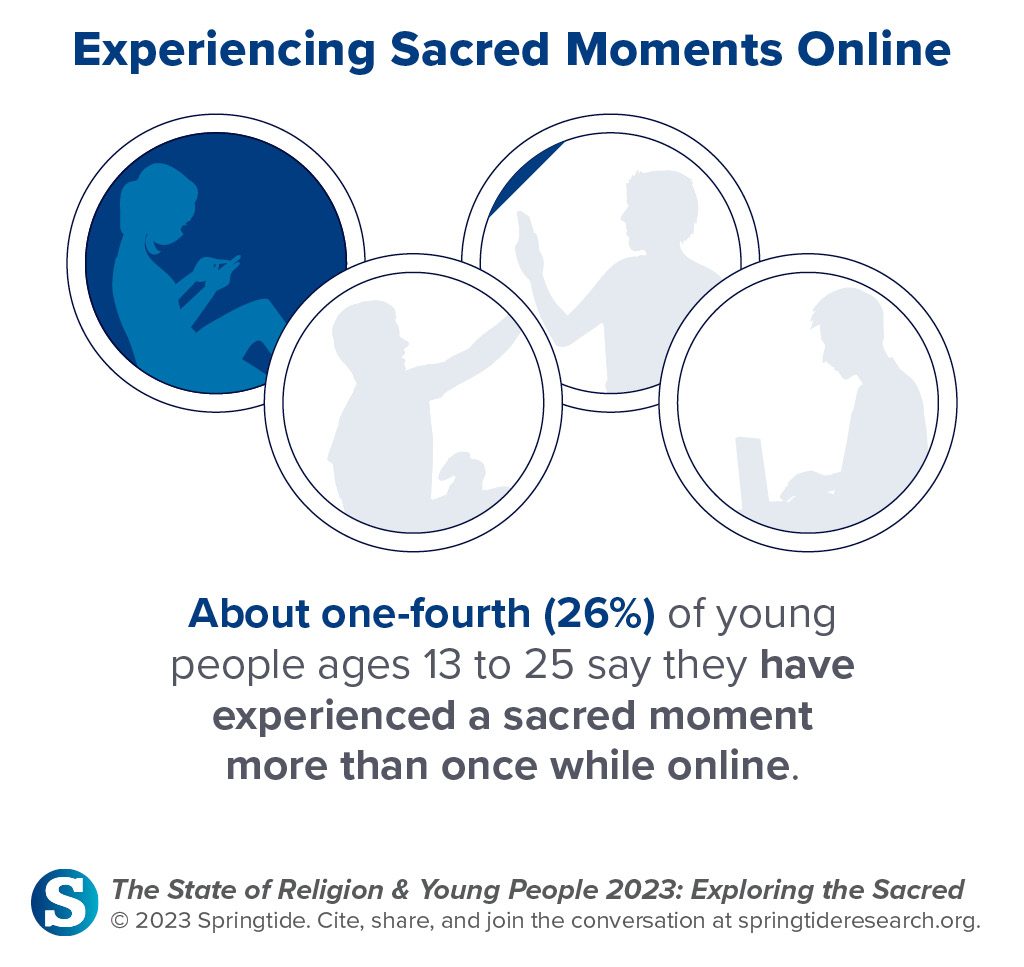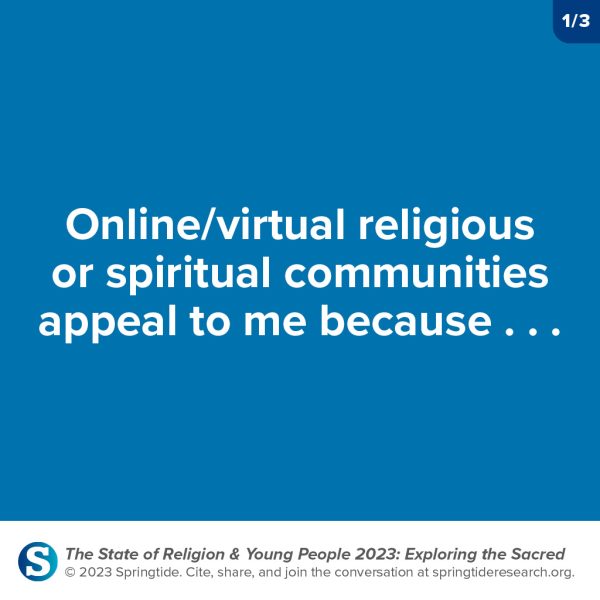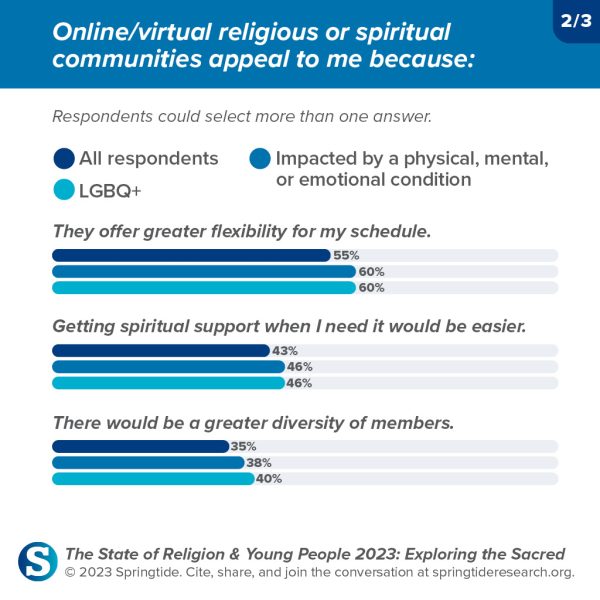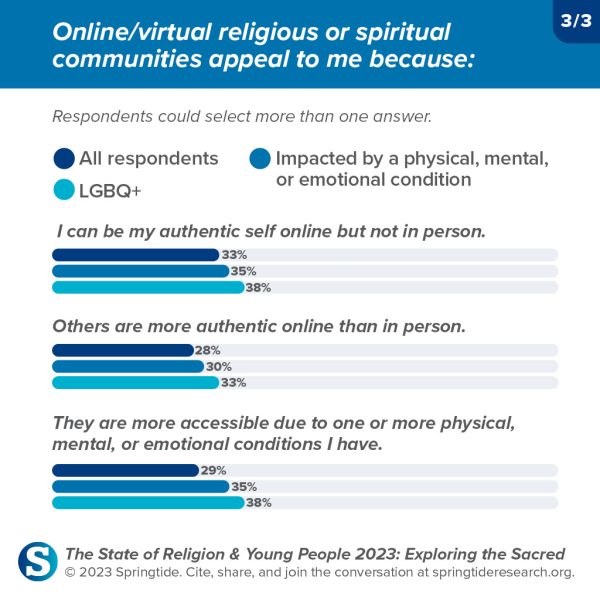
Gen Z’s Interest In Religious and Spiritual Communities
Technology’s impact on the way we experience the world is not as clear-cut as it once was. Digital spaces and the level of connection that happens there have grown more complex, more tangible and durable, and more meaningful out of necessity.
Our research shows that interconnectedness is a key factor in sacred experiences for young people. What does that mean for online spaces, where connection may look different than it does in person?

Although young people told us most sacred experiences don’t take place in traditional settings, others experienced significant moments while participating in a religious service online.
For some, live broadcasts of religious services or practices online made way for sacred moments. For example, David, 25, shares his experience of watching a Good Friday service that Pope Francis led:
During the first year of the pandemic, I would stream liturgies online. I did feel [a sacred moment] in my living room. I’m watching TV and seeing Pope Francis doing these things live. . . . It’s like my knowledge that it was live is what helped me feel more participatory in it. The pope was addressing believers around the world in that exact moment, in that exact place. And it’s not like my house felt any more sacred than it does any other day, but I felt like I was in this sacred place—like a feeling of transportation.
Caroline, 21, similarly sought online services during the pandemic. Reflecting on her experiences, she shares:
During COVID, I found different pastors from around the US, and there were definitely moments where . . . there were some things that God was showing me about how I’m thinking about things. Or where God helped me in understanding his character more.
When we asked young people if they were interested in a totally online spiritual community, almost 60% were at least somewhat interested. When we asked young people if they would consider joining a totally online spiritual community, 28% said yes, and an additional 25% said maybe. Of those who said they would consider joining a totally online spiritual community, 55% said they would consider purchasing a virtual reality headset/system if it were required to take part in a totally online spiritual community. The data show that while young people might have interest, they aren’t completely sold on online spiritual communities, especially if participation requires extra elements.
We asked young people who indicated that online or virtual religious or spiritual communities interest them to specify the reasons why. The majority selected “greater flexibility for my schedule” out of the six choices provided. We also found that certain reasons resonate more for specific groups of young people, including young people impacted by a physical, mental, or emotional condition as well as those who identify as LGBQ+.



Online spaces are not a replacement for in-person experiences, but a complement—and young people are accustomed to interacting in this hybrid manner. Young people may not be totally sold on online spiritual communities, but that doesn’t necessarily mean online spaces aren’t worth experimenting with to see if they serve particular communities of young people well.



